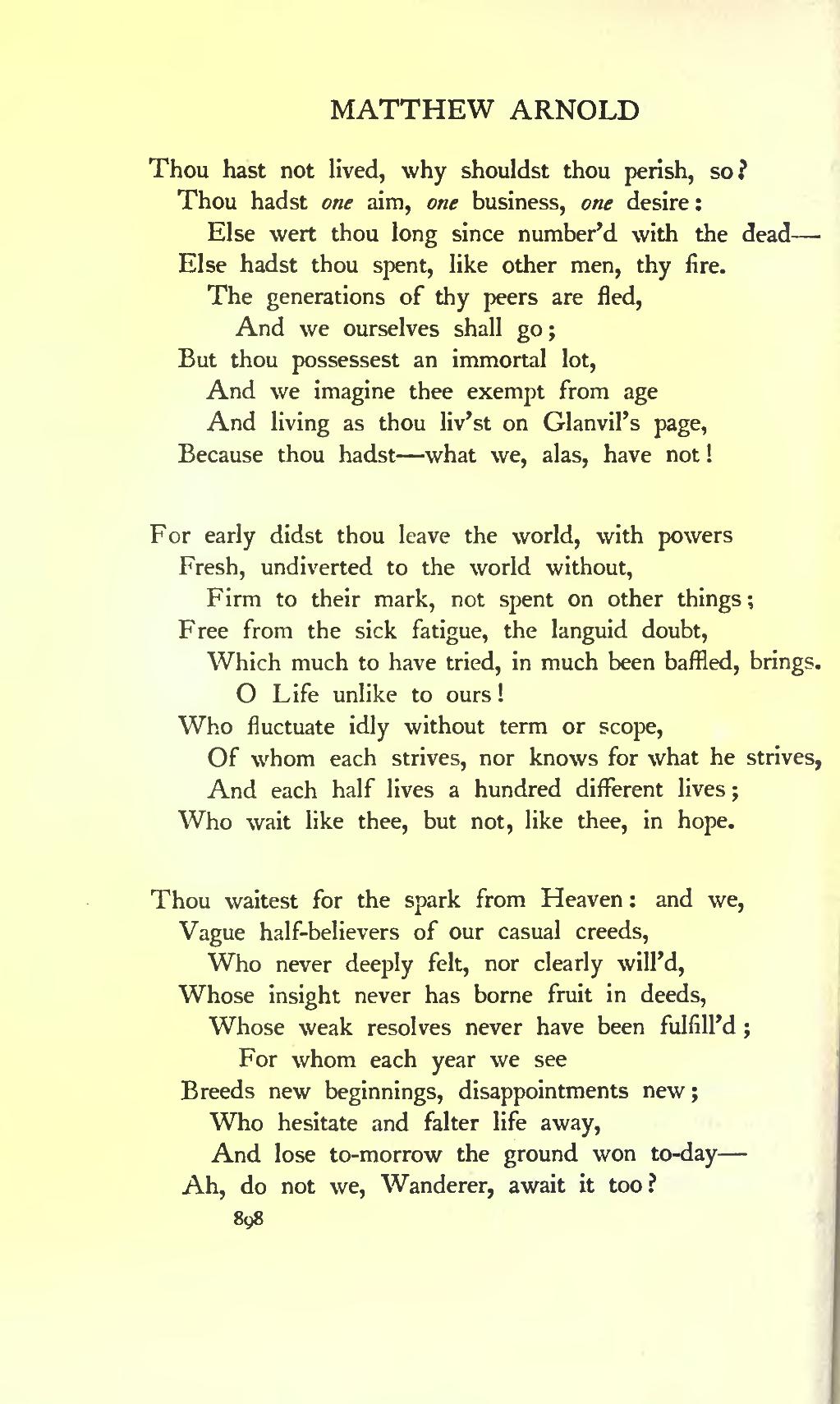Thou hast not lived, why shouldst thou perish, so?
Thou hadst one aim, one business, one desire:
Else wert thou long since number'd with the dead—
Else hadst thou spent, like other men, thy fire.
The generations of thy peers are fled,
And we ourselves shall go;
But thou possessest an immortal lot,
And we imagine thee exempt from age
And living as thou liv'st on Glanvil's page,
Because thou hadst—what we, alas, have not!
For early didst thou leave the world, with powers
Fresh, undiverted to the world without,
Firm to their mark, not spent on other things;
Free from the sick fatigue, the languid doubt,
Which much to have tried, in much been baffled, brings.
O Life unlike to ours!
Who fluctuate idly without term or scope,
Of whom each strives, nor knows for what he strives,
And each half lives a hundred different lives;
Who wait like thee, but not, like thee, in hope.
Thou waitest for the spark from Heaven: and we,
Vague half-believers of our casual creeds,
Who never deeply felt, nor clearly will'd,
Whose insight never has borne fruit in deeds,
Whose weak resolves never have been fulfill'd;
For whom each year we see
Breeds new beginnings, disappointments new;
Who hesitate and falter life away,
And lose to-morrow the ground won to-day—
Ah, do not we, Wanderer, await it too?
Page:Oxford Book of English Verse 1250-1900.djvu/924
Jump to navigation
Jump to search
This page needs to be proofread.
